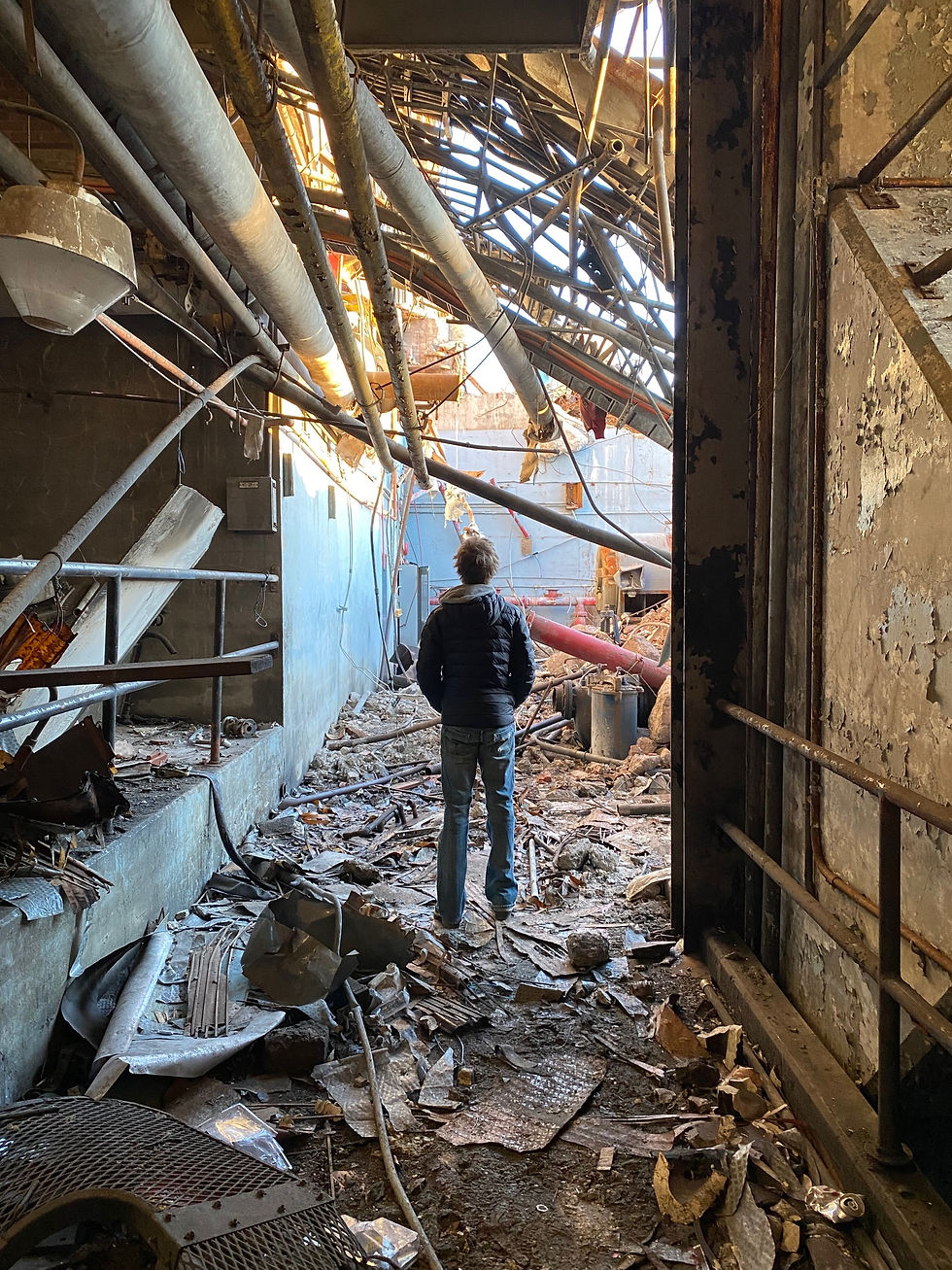A Lost Home
- ajg358
- Feb 14, 2025
- 3 min read
A dry hush lays over Court Street. Cars go up and down through the city's center, but it seems as if everything is stagnant, stuck in place with nowhere to go. I pass by people as relative strangers with blank faces and sunken eyes, only associated with each other by their spatial being. I glance upward to see facades dance toward the tops of buildings standing tall, reminding the passersby of what the city once was: a bygone era of industrial boom and investment. Gargoyles and finely crafted cornices elegantly drape the roofs of buildings, yet the street level below is blank and gray. My hometown is no different than any other city or town in Upstate New York, but this is not about them all, just one—Binghamton, New York.
Binghamton, New York, is where I was born, raised, and lived for seventeen years; thus far, it is ninety-four percent of my life, so it is safe to say I know its ins and outs pretty well. But what do I mean by that? Where to even start with Binghamton? Binghamton is comparable to a forgotten middle child of cities in upstate, even New York in general; it carries weight, and it transfers to the people—it transfers to me.
When I was a child, Binghamton was my home. Home was walking down the middle of my street late at night to be embraced by the soft yellow glow of the streetlamps against the stark black background of the world surrounding them. Home was the familiarity of the place I was in, the people I knew from birth, the comfort in my environment. This home is comprised of memories; rather, it is what the memories are comprised of—the content remaining within my consciousness. This home is unattainable now, forever memories only to be remembered, too far behind to reach back to.

Then, something shifted. In my sophomore year, I realized Binghamton was not my home. Although the conditions of home existed within my space, it was not as if I did not feel comfortable or accepting of my spatial existence. Rather, it was a recognition that Binghamton could not be my home. I did not want it to be. I was scared it would be. I am still scared it might be.
But why do I say all of this? Why say I gained some sort of existential clarity about my being within this association with my hometown? 2021 was a time when I was actively exploring; I sought the experience of where I was, and I sought to find more to what I was always told was a depressing place. Life then was going to the outskirts, finding abandoned factories, climbing to the top to see the skyline, being in and around downtown every day, walking down the streets and seeing the vacancy that was always there, seeing Binghamton for what it truly was and is.

Binghamton is the creature of a black hole that traps you within its confines, and no matter if you leave, you will always have to return. It plagues those who stay with a forlorn mindset from people who never got a chance to chase their dreams; its claws of economic struggle hold young potential back with a strangling grip, with stories and hopes spread in the street just to be washed down and away with corner store beer.
Binghamton lingers within me, a paradox of nostalgia and entrapment. It is a city that shaped me, yet one I fear will hold me back. Though I have seen it for what it is—its vacancy, its stagnation, its quiet resignation—I cannot fully detach from it. The weight of what it represents to me stays inside my awareness, a reminder of where I came from and where I hope never to return. Whether I leave for good or find myself drawn back, Binghamton will always be a part of me—an echo of home, yet never quite home again.

Comments